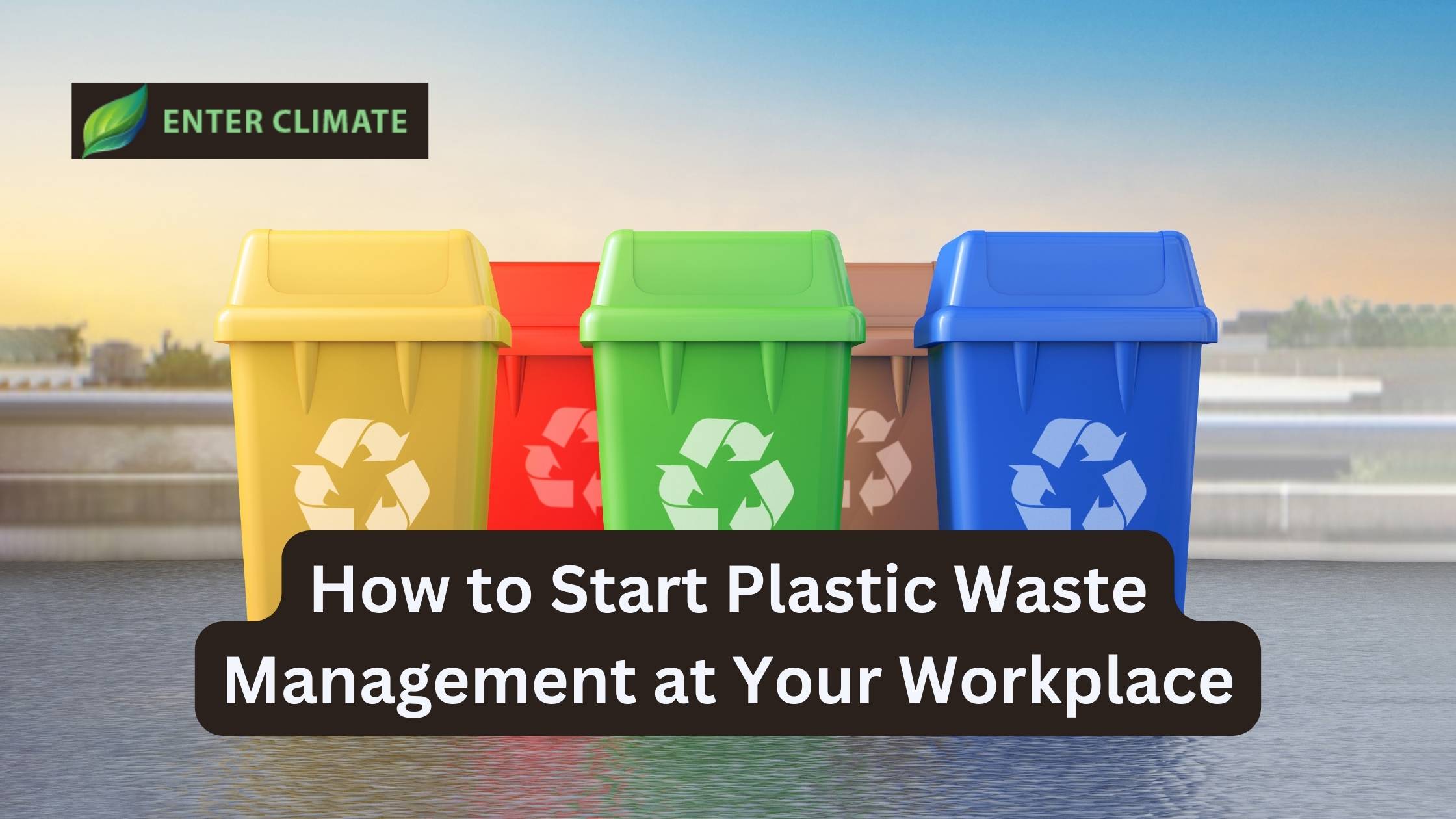How to Start Plastic Waste Management at Your Workplace

Strong 8k brings an ultra-HD IPTV experience to your living room and your pocket.
Plastic waste is a growing concern in today's world, and workplaces are no exception. Implementing effective plastic waste management practices at the workplace can significantly reduce the environmental impact and contribute to a cleaner and greener planet. In this blog, we will explore practical steps for starting plastic waste management at your workplace, ensuring that it is engaging, sustainable, and beneficial for all.
Understanding the Need for Plastic Waste Management
Plastic waste management is crucial for several reasons:
Environmental Impact: Plastic waste contributes to pollution, harms wildlife, and disrupts ecosystems.
Health Risks: Improper disposal of plastic waste can lead to the release of toxic chemicals, posing health risks to employees and the community.
Corporate Responsibility: Companies have a responsibility to adopt sustainable practices and reduce their environmental footprint.
By implementing plastic waste management practices, workplaces can set an example for others and contribute to a more sustainable future.
Steps to Start Plastic Waste Management at Your Workplace
Here are some practical steps to kickstart plastic waste management at your workplace:
1. Conduct a Plastic Waste Audit
Before implementing any changes, it's essential to understand the current plastic waste situation at your workplace. Conducting a plastic waste audit involves:
Identifying Sources: Determine where the plastic waste is coming from, such as packaging, office supplies, or employee consumption.
Measuring Waste: Quantify the amount of plastic waste generated over a specific period.
Analyzing Data: Analyze the data to identify patterns and areas where waste can be reduced.
2. Set Clear Goals and Objectives
Establish clear goals and objectives for plastic waste management. These goals should be:
Specific: Clearly define what you aim to achieve, such as reducing plastic waste by 50% in one year.
Measurable: Set measurable targets to track progress.
Achievable: Ensure that the goals are realistic and achievable within the given timeframe.
Relevant: Align the goals with the overall sustainability objectives of the organization.
Time-bound: Set a timeline for achieving the goals.
3. Promote Awareness and Education
Educating employees about the importance of plastic waste management is crucial for the success of the initiative. Here’s how to promote awareness:
Workshops and Training: Conduct workshops and training sessions to educate employees about plastic waste management practices.
Communication Campaigns: Use posters, emails, and social media to spread awareness about the initiative.
Employee Involvement: Encourage employees to participate in brainstorming sessions and provide feedback on the initiative.
4. Implement Waste Segregation Practices
Proper waste segregation is key to effective plastic waste management. Here’s how to implement it:
Segregation Bins: Provide separate bins for plastic waste, organic waste, and other recyclables.
Clear Signage: Use clear and informative signage to guide employees on proper waste segregation.
Regular Monitoring: Regularly monitor and review the segregation process to ensure compliance.
5. Reduce Plastic Usage
Reducing plastic usage is one of the most effective ways to manage plastic waste. Here are some strategies to reduce plastic use at the workplace:
Reusable Items: Encourage the use of reusable items such as water bottles, coffee cups, and lunch containers.
Alternative Materials: Opt for materials like glass, metal, or biodegradable products instead of plastic.
Bulk Purchasing: Purchase office supplies in bulk to reduce plastic packaging.
6. Promote Recycling
Recycling is a critical component of plastic waste management. Here’s how to promote recycling at your workplace:
Recycling Programs: Set up a recycling program in collaboration with local recycling facilities.
Educate Employees: Educate employees about what can and cannot be recycled.
Incentives: Provide incentives for employees who actively participate in the recycling program.
7. Engage Suppliers and Partners
Engaging suppliers and partners in plastic waste management efforts can amplify the impact. Here’s how to do it:
Sustainable Practices: Work with suppliers who adopt sustainable practices and reduce plastic packaging.
Collaborative Initiatives: Collaborate with partners on initiatives to reduce plastic waste.
Supply Chain Audits: Conduct audits to ensure that suppliers comply with plastic waste management standards.
8. Monitor and Evaluate Progress
Regular monitoring and evaluation are essential to track the progress of the plastic waste management initiative. Here’s how to do it:
Data Collection: Collect data on plastic waste reduction, recycling rates, and employee participation.
Feedback Mechanism: Establish a feedback mechanism to gather input from employees and stakeholders.
Continuous Improvement: Use the data and feedback to make continuous improvements to the initiative.
Conclusion
Implementing plastic waste management at the workplace is a significant step towards sustainability. By conducting a plastic waste audit, setting clear goals, promoting awareness, implementing waste segregation, reducing plastic usage, promoting recycling, engaging suppliers, and monitoring progress, workplaces can effectively manage plastic waste and contribute to a cleaner and greener environment. Let’s take these steps to make our workplaces more sustainable and set an example for others to follow.
FAQs
1. What are some simple ways to reduce plastic waste at the workplace?
Simple ways include using reusable items, opting for alternative materials, and purchasing office supplies in bulk.
2. How can employees contribute to plastic waste management?
Employees can contribute by practicing proper waste segregation, participating in recycling programs, and reducing their plastic consumption.
3. Why is it important to involve suppliers in plastic waste management?
Involving suppliers ensures that sustainable practices are adopted throughout the supply chain, amplifying the impact of plastic waste management efforts.
Note: IndiBlogHub features both user-submitted and editorial content. We do not verify third-party contributions. Read our Disclaimer and Privacy Policyfor details.


